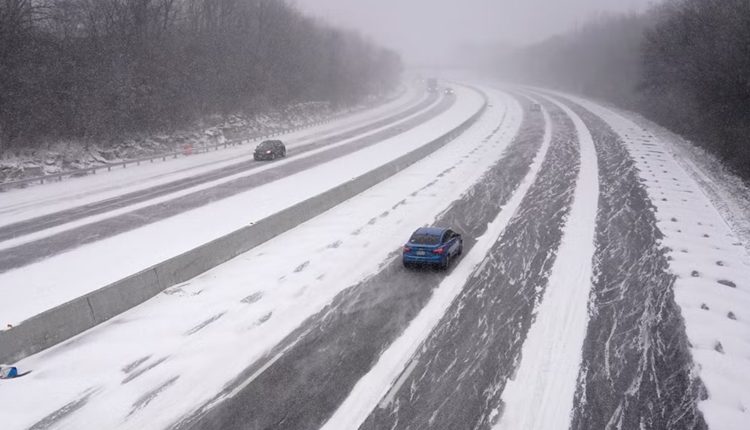Some 200 million Americans are feeling the icy grip of a massive winter storm that has been linked to at least 19 deaths ahead of the holiday weekend.
More than 1.5 million people lost power and thousands of flights were cancelled on Friday.
The vast storm extends more than 2,000 miles (3,200km) from Texas to Quebec.
A bomb cyclone, when atmospheric pressure plummets, has brought blizzard conditions to the Great Lakes on the US-Canada border.
In Canada, Ontario and Quebec were bearing the brunt of the Arctic blast, with power cut to hundreds of thousands.
Much of the rest of the country, from British Columbia to Newfoundland, was under extreme cold and winter storm warnings. They fled south to escape winter.
The US National Weather Service (NWS) said its Friday map “depicts one of the greatest extents of winter weather warnings and advisories ever”.
Temperatures in Elk Park, Montana, dropped to -50F (-45C), while the town of Hell, Michigan, has frozen over.
Heavy snowfall was forecast in areas of Pennsylvania and Michigan. Buffalo, New York, was expecting at least 35in (89cm). The National Weather Service reported zero mile visibility there and posted video of white-out conditions.
More than eight million people remained under blizzard warnings, said the NWS.
Even the usually milder southern states of Louisiana, Alabama, Florida and Georgia were experiencing hard-freeze warnings.
A number of the storm-related fatalities have involved road traffic accidents, including a 50-car pile-up in Ohio that killed four motorists. Another four died in separate crashes in the state.
Travel problems across the country were being exacerbated by a shortage of snow plough operators, with low pay rates being blamed.
More than 5,900 US flights were cancelled on Friday, according to the tracking site FlightAware, as flyers battled to make it home for Christmas. Another 1,200 Saturday flights have already been cancelled.
By Friday night one million customers had no electricity across the US, according to PowerOutage.us.
The NWS says more than 100 daily cold temperature records could be tied or broken over the next few days. Decades-old records have already been matched:
Denver, Colorado, dropped to -24F on Thursday, its lowest point since the 1990s.
Wichita, Kansas, recorded its coldest wind chill (-32F) since 2000.
Nashville, Tennessee, saw its temperatures plunge to below zero for the first time in 26 years. Casper, Wyoming, set a new record low on Tuesday of -42F.


Comments are closed.